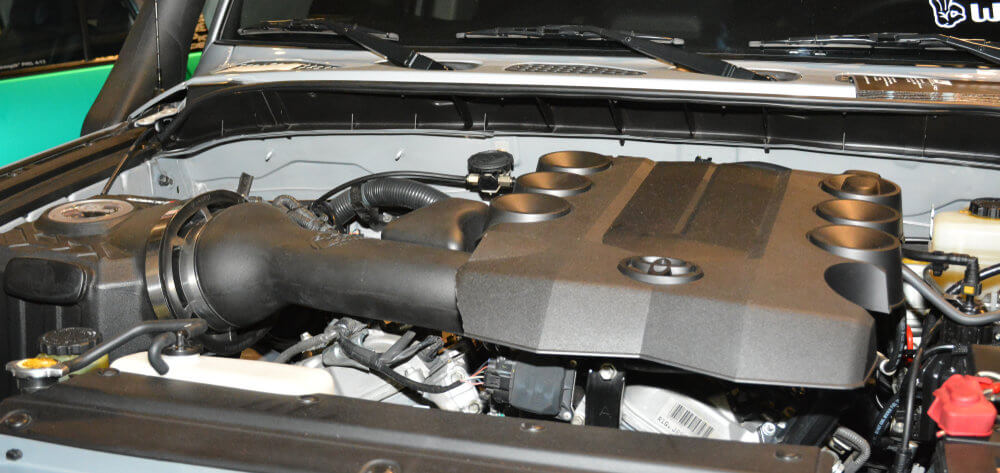What Is The Life Expectancy Of The FJ Cruiser Engine?

The life expectancy of the engine in a Toyota FJ Cruiser can vary based on several factors, including maintenance, driving habits, and overall care of the vehicle. The FJ Cruiser is generally known for its reliability and durability, and with proper maintenance, its engine can last for a long time.
Here are some key factors that can influence the engine’s lifespan…
- Maintenance – Regular and proper maintenance is crucial for the longevity of any engine. Following the manufacturer’s recommended maintenance schedule, which includes oil changes, fluid replacements, and inspections, helps keep the engine in good condition.
- Oil Changes – Consistent and timely oil changes are particularly important. Engine oil lubricates and protects internal components, and neglecting oil changes can lead to premature wear and engine damage.
- Driving Habits – How the vehicle is driven can affect engine longevity. Frequent high-speed driving, aggressive acceleration, and towing heavy loads can put more stress on the engine and reduce its lifespan.
- Quality of Fuel – Using high-quality fuel and adhering to the manufacturer’s recommended fuel octane rating can help maintain engine performance and efficiency.
- Climate and Environment – Extreme temperatures, such as extreme heat or cold, can affect engine performance and longevity. Properly maintaining the vehicle’s cooling system is essential in hot climates.
- Proper Repairs – Ensuring that any necessary repairs are performed promptly and correctly can prevent issues from escalating and causing further engine damage.
- Modifications – Some modifications, such as aftermarket engine performance upgrades, can affect engine reliability and longevity. It’s essential to choose modifications carefully and have them installed by reputable professionals.
- Mileage – The engine’s lifespan can also be influenced by the total mileage of the vehicle. While there’s no set limit, many engines can last well beyond 200,000 miles with proper care.
- Environment and Usage – How and where the vehicle is driven can impact engine life. Off-road use, for example, can expose the engine to more dust, dirt, and extreme conditions.
In general, Toyota vehicles, including the FJ Cruiser, are known for their longevity when properly maintained. With regular servicing, attention to maintenance, and responsible driving habits, it’s not uncommon for the engine in an FJ Cruiser to last well over 200,000 miles or more. Individual experiences may vary, and factors such as maintenance history and driving conditions play a significant role in determining the engine’s lifespan.
